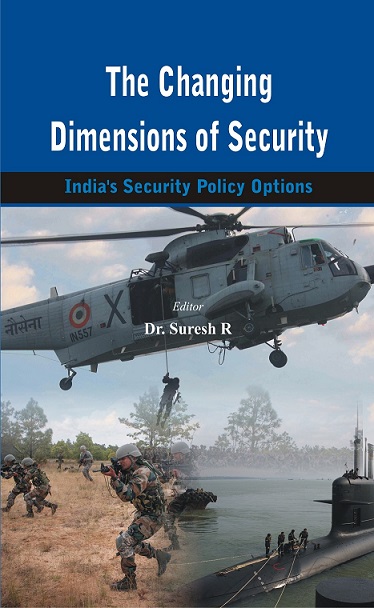Author: Dr. Suresh R
Pages: 282
Format: Hardback
ISBN: 9789384464806
Size: 6 * 9
Publication Date: Oct 2015
Price: 950/-
Description:
Buy Book Buy eBook International Customer
The end of cold war and the on-going globalization process along with the proliferation of non-traditional threat to security of the nations led to multilateralism in international relations. Though the great powers are not ready to accept the new developments, the post-cold war events such as threat from non-state actors to the security of nation, the global economic slowdown, and global climate change compelled even the most militarily powerful nation to seek multilateral approach to address these trans-border menaces.
The global movements towards democratization and protection and promotion of human rights supported by ICT once again brought individuals rights and security into focal point. It appears that even if nations are secure people living there may not be secure. The civil wars taken place in some nation states to protect the rights of multi-ethnic groups or the demand for right to self-determinations of people are examples of such a situation. In this context security means people’s security and international efforts are required to ensure people’s security from any threat emanates from within or outside the nation states. Thus human security assumes great significance in the post-cold war era of profoundly interdependent global system. There is a blurred boundary between national security and international security on the one hand and the national security and human security on the other hand.
The initiative taken by the new government at the federal level towards good neighbourhood and better relation with great powers along with focusing more on human security issues appears to be policy in the right direction. Again the shift from a land centric security paradigm to maritime security and coastal security are also visible in recent times.
The book deals with the changing dimensions of security at the theoretical level and a wide spectrum of security issues that India is confronted with and also certain policy options. In the theoretical section the strategic doctrine of India is well reviewed and policy options are also explored. It covers areas such as biological perspective of security, human security perspective, energy security and maritime security. In addition it also examines some of the bilateral security issues and concerns with neighbouring countries.
About the Author
Dr Suresh R. is Associate Professor, Department of Political Science, University of Kerala, Kariavattom Campus, Thiruvanathapuram, Kerala. He took M Phil degree in Political Science from University of Bombay, Mumbai and Ph D in International Studies from School of International Studies, Pondicherry Central University, Pondicherry, with UGC Junior Research Fellowship. He had published Four Books and has also published research articles in reputed national and International Journals. He is working on a UGC Major Research Project ‘Maritime Security of India: The Coastal Security Challenges and Policy Options’. He has been selected as Associate in the Indian Institute of Advanced Study, Shimla and is working on the project titled The Tibetan Issue and India - China Border Problem; A Security Perspective. He is the Hon. Director of the prestigious V K Krishna Menon Study Centre for International Relations, University of Kerala, Thiruvanathapuram.
Table of Content
Contributors, Introduction, PART – I. The Changing Dimensions of Security- A Theoretical Perspective, India’s Strategic Thinking and Policy Options, Insecurity and the Search for Security: A Biological, Perspective, Examining India’s National Security Semantics: A Theoretical Consideration, Theorizing the Sino-Indian Ties in the Emerging Global Order, PART – II. India’s Security Concerns in the Emerging Global Order, The Defence Aspect of India’s National Security, Nuclear South Asia: Strategic and Security Dimensions , Indo-US Nuclear Deal and India’s Nuclear Policy, Sino-Indian Relations in the Era of Globalization, Pakistan’s Afghan Policy in Post 2014 Scenario: Options for India, PART – III. Maritime Security of India: The Challenges and Options, Challenges and Options for a Maritime India in the 21st Century, Terror on High Seas, Emerging Maritime Threats and Challenges in India’s Marine Domain: Post 26/11, Post 26/11 Terrorist Threats in India – Is National Counter Terrorism Centre alone the Solution?, PART – IV. Human Security in India: The Challenges and Policy Options, India’s Security Challenges and Policy Options: A Human Security Perspective, The Changing Dimensions of Security and Emerging Nontraditional Threats in South Asia: A Human Security Perspective, Index


